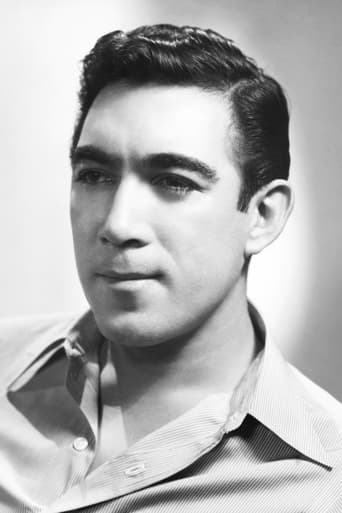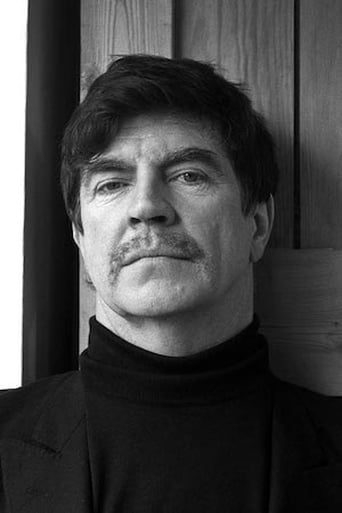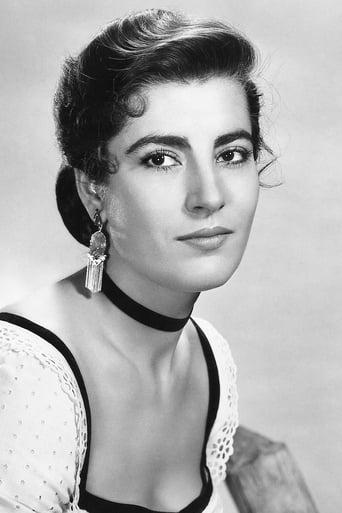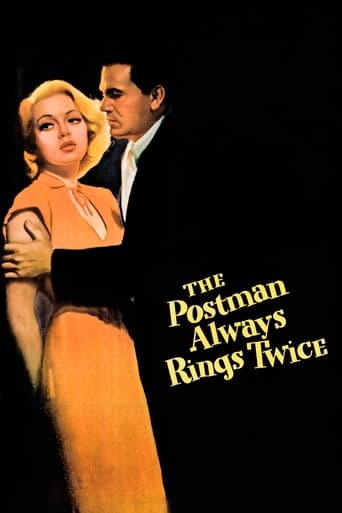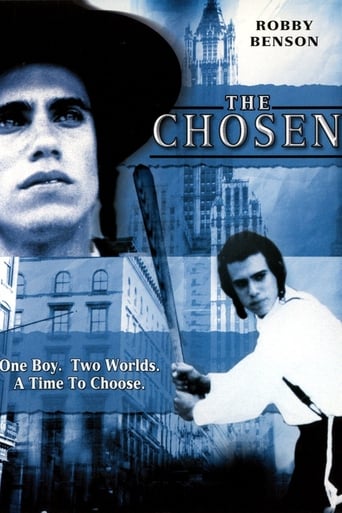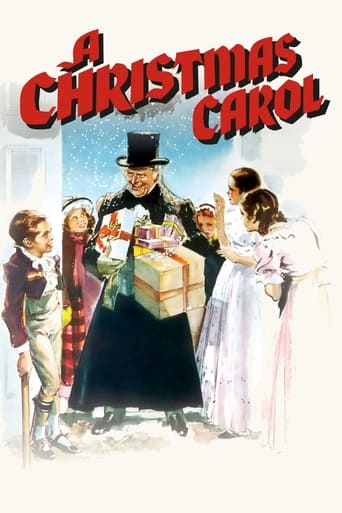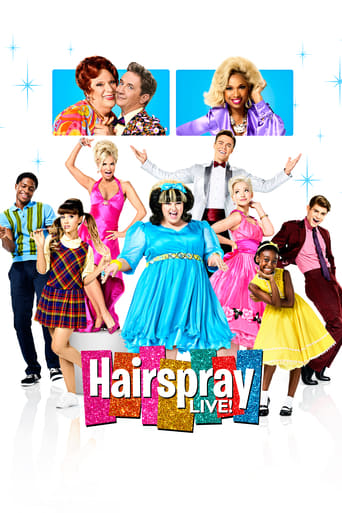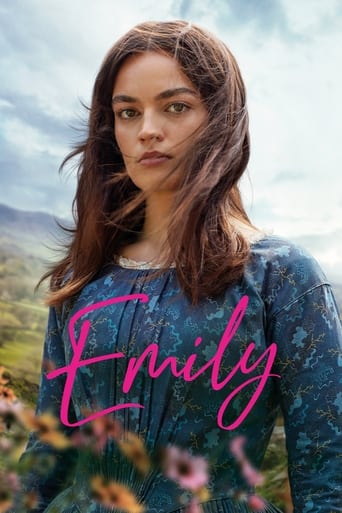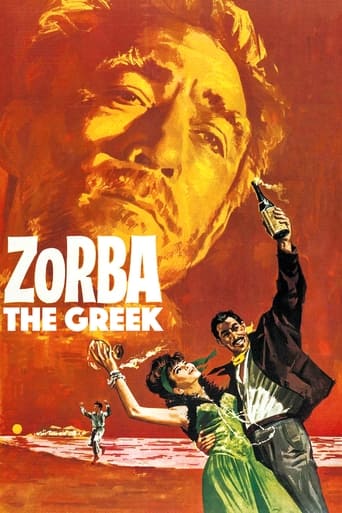
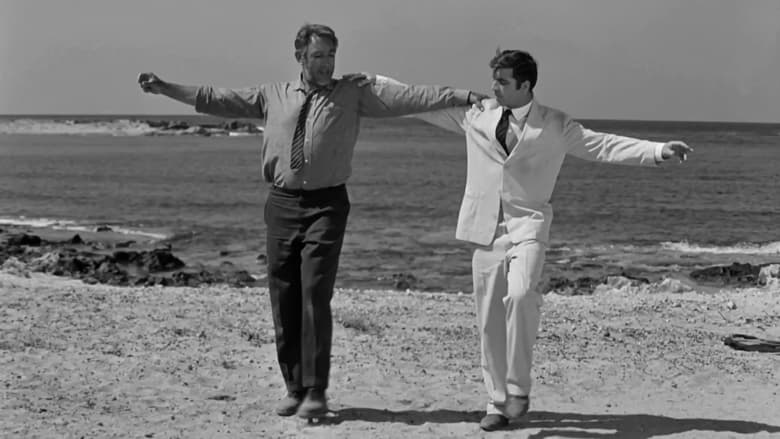
Zorba the Greek (1964)
An uptight English writer traveling to Crete on a matter of business finds his life changed forever when he meets the gregarious Alexis Zorba.
Watch Trailer
Cast


Similar titles
Reviews
Anthony Quinn really makes Nikos Kazantzakis' character of Zorba come to life, turning in a fantastic performance, and conveying Zorba's philosophy of living life to the full, of dancing and laughing in not just moments of joy or success, but also those of tragedy or failure. The book is a masterpiece, and while the movie doesn't (or perhaps can't) get quite as deep, Michael Cacoyannis (producer/director/screenwriter) certainly does it justice, shooting on location in Crete, capturing beautiful images and an authenticity in his film, and letting Quinn shine. We're given a wonderful philosophy in this gruff character who eschews pretense, book learning, rational analysis, religion, and nationalism. He is at once both hedonistic and simple, and also profound and deep, having gone beyond all theories and frameworks while living his life with a kind of purity. Zorba grabs us from the beginning, asking an Englishman (Alan Bates) "Will no man ever do something without a 'why?' Just like that, for the hell of it?" as they await their ferry, and then quickly sizing him up by saying "You think too much, that is your trouble. Clever people and grocers, they weigh everything." There is a challenge to rationality and convention here, and while the Englishman hires Zorba, it's clear that Zorba will be the one doing the mentoring, on how to live. A part of this is in nudging him into pursuing women, which Zorba does with relish. Aside from his ribald moments, there are others which are pretty risqué, including an old widow (Lila Kedrova) recalling an evening she spent with four admirals, and making it clear they all had sex together after a champagne bath. There are two very disturbing scenes in the film, one of which is when a young woman (Irene Papas) a man has killed himself over is surrounded by the townsfolk, stoned, and then killed. It's truly horrifying, and even if we can 'accept' it as an honest portrayal of old-world culture (though she's not guilty of anything!), the fact that her death means nothing to the two principal characters, the Englishman especially, doesn't seem genuine. Regardless, it's very difficult to watch. Later, the instant an old woman dies, her home is ransacked and looted, in another ugly mob scene. It's as if Cacoyannis is emphasizing how primitive Crete is, and juxtaposing this with Zorba's primitive (though enlightened) philosophy. This is consistent with Kazantzakis' writing in the novel, as well as in 'Freedom or Death'. There is a ruggedness in the people, as rugged as Crete itself, and if you're sensitive to that or behavior which is far from politically correct, you may not like the film as much.A couple more quotes: On aging: "They say that age kills the fire inside of a man, that he hears death coming. He opens the door and says, 'Come in. Give me rest.' That is a pack of old damn lies! I've got enough fight in me to devour the world. So I fight."On being irrational: "A man needs a little madness, or else he never dares cut the rope and be free."On war: I have done things for my country that would make your hair stand. I have killed, burned villages, raped women. And why? Because they were Turks or Bulgarians. That's the rotten damn fool I was. Now I look at a man, any man, and I say, 'He is good. He is bad.' What do I care if he's Greek or Turk? As I get older, I swear by the bread I eat. I even stop asking that. Good or bad, what is the difference? They all end up the same way...food for worms."
Reviewing "Zorba" is always a pleasurable invitation. Personally, it is a film that brings back several memories of the most diverse phases of my life. The most admirable thing about the film is its simplicity inherited from neo-realism, something almost impossible to see in today's cinema, and probably by the characteristics of our individualistic generation. The paradox in "Zorba" is in its simplicity traits that gain a splendid dimension. Everything is so well done that even slips end up being irrelevant, though they exist. The film's occasional mistakes may be characterized by the adaptive relationship of Nikos Kazantzakis's novel with the script and direction signed by Michael Cacoyannis.By fragmenting a moment of life between the meeting of the young Basil (Alan Bates) with Zorba (Anthony Quinn) through the relations of work, companionship and ending with the farewell of these friends, we have in this fragment of moments, insertions in style of chronicles of the Life that do not always punctuate or construct relations, besides, by centralizing the film in relaunching between these two friends, we lose, and in total merit by the artistic and interpretative quality, very interesting figures like the brilliant Madame Hortense (Lila Kedrova), the Widow Irene Papas) and the crazy / silly city (Sotiris Moustakas). In addition to all these characters, add the inhabitants of the village of Crete (where most of the history goes), which oscillate between a great chorus of representation of the local inhabitants and at other moments, this mass of the population obtains the prowess of being the Protagonists of "Zorba", influencing in the plots and determining situations.Perhaps the weakest point of the script, in the non-relationship in particular, with the women's history of the film, the widow and Madame, both seem to be a resource to symbolize, a specific love relationship in the life of the two friends, but Are only one in front of the others that have already come and the others that will still come, by the way, the film provides few clues about the past and even fewer about the future of the characters Zorba and Basil, which is not a bad thing, if there is something That neo-realism clearly points out, is the coming and going of stories that cross us.A special highlight for the photography of Walter Lassally and the art direction of Vassilis Photopoulos, both deservedly awarded the Oscars in their respective categories and which are striking to this day, a true composition class and artistic feature, the reflection of this is remarkable also Quality of the movie.One aside that is necessary here, is for the quality in the work of all the actors, indisputably excellent, with special attention to the female performance and in great prominence, Anthony Quinn, an undoubtedly enviable actor. When we know a little about the story of this Mexican actor, who was boxing fighter ... finally, when we know a little more about his life and career, our chin falls and we are even more admired for his work. Quinn, performed in "Zorba" a rare feat for many other actors, composing a timeless character, which until today is referenced and revered. Without doubt, a brilliant work by an equally brilliant actor.
Would have been good but for the barbarism.An Englishman, Basil (played by Alan Bates), is en route to Crete where he owns a long-disused mine. Along the way he encounters, befriends and employs Zorba (Anthony Quinn). Once in Crete they set about trying to get the mine operational. Basil is quite risk averse, studious and introverted while Zorba is extroverted, gregarious, happy-go-lucky and lives life to the fullest. Over time, Zorba's zestfulness starts to rub off on Basil...Starts slowly but over time the movie starts to accumulate a feel- good factor, especially when we see Zorba's antics and Basil start to open up. However, this is all ruined by two acts of sheer barbarism towards the end, both committed by the moronic inhabitants of the village. What's worse, both these acts are just taken as par for the course, and there is no ultimate justice for these acts. You could understand the imbecilic villagers feeling that way, but both Basil and Zorba continue as if nothing had happened. What's more, the first case involves someone quite dear to Basil.From the point of the first atrocity, the air goes out of the movie and this is made worse by the second act. There are some lighter moments in the last few scenes but these can't repair the damage. What should have been a light, happy movie, even a comedy of sorts, ends as an uneven study in the barbaric customs and thinking of primitive people.
A built-in defect of this film adaption from the source novel ALEXIS ZORBAS by Nikos Kazantzakis is its utterly invidious treatment of its female characters, indisputably it was more acceptable in a male-chauvinistic backwater when it was released in the 60s (a 7 Oscar- nominations including BEST PICTURE, DIRECTOR, LEADING ACTOR for Quiin and SCREENPLAY with 3 wins), but it sheerly renders its modern-day audience a mouthful taste of misogyny and xenophobia, to which director Kakogiannis uncompromisingly adhere.What makes me more ill-at-ease is the egregious nonchalance projected afterward by their male counterparts, after the shocking demise of the widow (Papas, the author even doesn't bother to give her a name), our young half-Greek-half-British protagonist Basil (Bates) has no remorse of his inadvertent complicity in it and never even care to contest on her behalf; as for the forlorn Madame Hortense (Kedrova in her Oscar-crowning role), her beloved "husband" Zorba (Quinn) leaves her cold body on the deathbed after a fiendish loot conducted by the village people (initiated by a few local crones), he has no motivation to bury her and let her rest in peace for the sake of their liaison, even though we all know it is a miserable one-sided infatuation, it is outrageously despondent.Anyway, if one can abide all those random grouse, the film is a competently dazzling piece of work by Cyproit director Kakogiannis, a less glamorous rigmarole compared with David Lean's A PASSAGE TO India (1984, 7/10), it is in the 1930s, a young English writer Basil visits Crete for his inheritance on the island, he encounters a larger-than-life outgoing middle-age Greek, Zorba, who volunteers to work for him and assists him in starting a mining quarry on his inherited lot, the two form a close bond meanwhile their embroilment with two widows on the island sour the Cretan hospitality of the native inhabitants, things turn uglier than one can anticipate (on a premise one doesn't familiar with its novel). Zorba, a cimbalom player (called Santouri in Greece), a character exuberant with lust for life, the living-in-the-moment sort, an illiterate but knows to address "with your permission" when prying into his boss' private affairs, Quinn's English is somewhat too proficient in context, but his effervescence effectively galvanizes the bleak conditions, he plays boisterous pranks on the monks of monastery and materializes his creative idea of transporting limber from the mountain to their land, he is an emblem of complete freedom, but as a person, he is a deadbeat libertine, Quinn's performance is headstrong but persuasive. On the contrary, Bates' Basil is bookish, genteel and even effeminate when put opposite with Zorba, if he is more or less a proxy of the author himself, he barely motivates anything, he observes, takes the advantage of being a foreign on a primal island, one time he dares to follow his heart, tragedy ensues, both characters are not as likable as they appear to be. Kedrova brings out two sides of Madame Hortense's life track, balancing her "stop the boom- boom" French foxiness with her latter compassion-inducing despair, helplessly living in her wish fulfillment. Papas, with scarce lines, delivers her powerful resentment superbly albeit it is damaged good in its conception, like Madame Hortense, women are men's appendages, this undertone is as vicious and dangerous as the macabre barbarism, all stink of passé values spiked with unfulfilled loathsomeness accumulated through one's own personal path.


